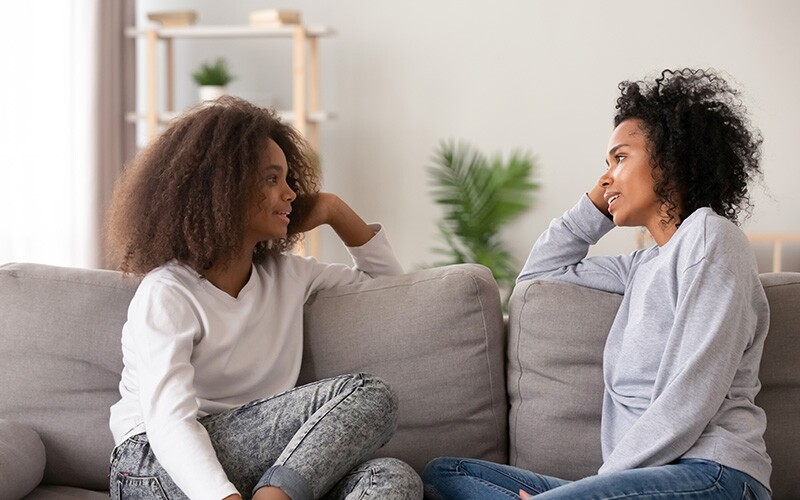Listening is a skill we can learn, nurture, and improve. Active listening shows our interest in others when they share personal stories and helps build strong relationships. Let’s take a closer look at how to develop and master active listening skills to enhance your relationships with those around you.
What Is Active Listening?
Active listening versus passive listening can be a little confusing. Isn’t all listening the same? It turns out, there are many different ways we listen. Active listening is the form of listening that engages both the speaker and listener the most, and it helps convey information, build relationships, and show empathy toward others. Developing active listening skills can help you with your interpersonal relationships, your work experience, and your genealogy work!
Active listening is when the listener listens to a story with genuine curiosity and interest, and they invite the speaker to continue simply by the way they’re listening. Three key active listening skills we can develop are listening with curiosity, asking open-ended questions, and using positive body language and nonverbal communication techniques.

Three Key Active Listening Skills
1. Listen with Curiosity
Listening with curiosity is one of the best active listening skills you can practice. Your curiosity will lead you to listen with more interest, ask inviting questions, and show your friends and family that you care about what they’re telling you. Curiosity also helps you focus more on the conversation at hand instead of any wandering thoughts that cross your mind. But it isn’t always easy to listen with curiosity. If you’re tired, frustrated, or simply uninterested, listening with genuine curiosity can be difficult. Consider these three questions to help boost your curiosity.
- Why is this person telling me this story?
- What about this story is meaningful to them?
- What about our relationship makes them feel connected and open with me?
When we seek to understand the people around us, their stories become more interesting because their stories become our stories too.

2. Ask Open-Ended Questions
Another effective active listening skill you can practice is simply asking questions. Specifically, we want to ask open-ended questions. Say you’re interviewing a grandparent about their childhood; if you ask them yes-or-no questions, you probably won’t learn much more than some basic facts about where they grew up. If you ask open-ended questions, however, you’ll invite them to open up and tell you more about what growing up was like. They may tell you how they felt or what they experienced during their youth. These types of questions make an interview feel more like a conversation. Here are just a few examples of open-ended questions.
- How did that make you feel?
- What was that like for you?
- What was the hardest part of that experience?
As we ask questions that inspire thoughtful and personal responses, we can learn more about each other and increase our curiosity in the story.
3. Use Positive Body Language and Nonverbal Communication
Nonverbal communication is the king of active listening. And our nonverbal communication extends beyond smiles or frowns. You can show your interest in someone’s story simply by being aware of how you stand and sit. Point your feet toward the speaker to show that they have your full attention. Stand or sit with open posture; don’t cross your arms or legs. All of these small details communicate a subconscious message of interest to the person you’re listening to.
Continue to Practice Your Active Listening Skills
The principles of active listening are simple, and with a little practice, you’ll become a better listener. As you practice, consider other ways you can improve your active listening skills. To assist you, FamilySearch.org has several in-home activities to help you discover and connect with your family. You can also check out our post on responding to difficult stories and listening to understand to help you develop other listening skills.


